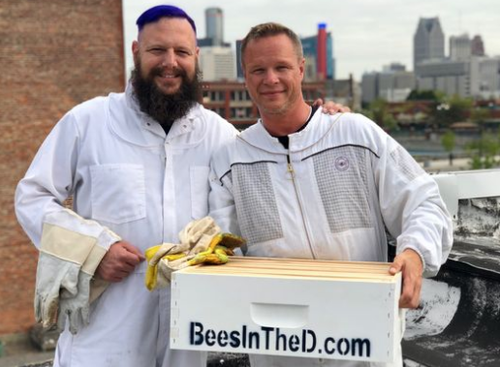“They Just Appeared One Day”: Detroit Is Importing Millions Of Honey Bees
While most of the focus on Detroit generally boils down to how many vehicles it is exporting elsewhere, it’s what the city is importing now that is turning heads.
Detroit has imported about 12 million honey bees to the metro Detroit area over the last five years, the Wall Street Journal reported this week. The bees are part of an effort by a non-profit (called ‘Bees in the D’) to help urban farms that offer residents produce, the report says.
Detroit resident Don Carter said: “There are so many empty fields, it can’t do anything but help add some color to all the green, grassy lots.”
And of course, there’s pushback from environmentalists, who are accusing the non-profit of being mean to the local bees which “might not make honey but can hold their own as pollinators,” the report says. The newcomer bees might add competition and spread disease, environmentalists claim.
Some local residents aren’t amused, either. 46 year old Damon Currie lives near where about 360,000 bees were placed in 2019 and was stung with his 8 year old son last summer.
He told the WSJ: “I started waving off the bees that were around him and I got stung too. I had never been stung before that in my life.”
“They couldn’t knock on the door and tell us about it? The hives just appeared one day. We’ll just be sitting on the porch talking, laughing, and the bees will come at us and ruin it. Take those hives somewhere else.”
The founder of the non-profit, Brian Peterson-Roest, says he tells people close to the new hives but isn’t able to reach everyone in a specific area. “I was in a real low in my life when the bees came my way and brought new purpose to me,” he said.
Sheila Colla, an associate professor of environmental studies at York University in Toronto whose research focuses on the conservation of pollinators and who is familiar with the Michigan-area ecosystem, told the Journal: “Honey bees are so different from our native bees. The bees that are at risk of extinction are ones you can’t order by the millions.”
Annie Hakim, co-owner of Featherstone Garden, said of the bees: “I feel very fortunate to have them”.
‘Bees in the D’ is expected to open a $1.1 million botanical garden that will house about 300,000 bees in Spring 2022. He has struck deals for the bees to live on properties of local farms and even on the properties of some General Motors facilities.
Tyler Durden
Sat, 07/31/2021 – 19:30
via ZeroHedge News https://ift.tt/3zUiQ0S Tyler Durden
